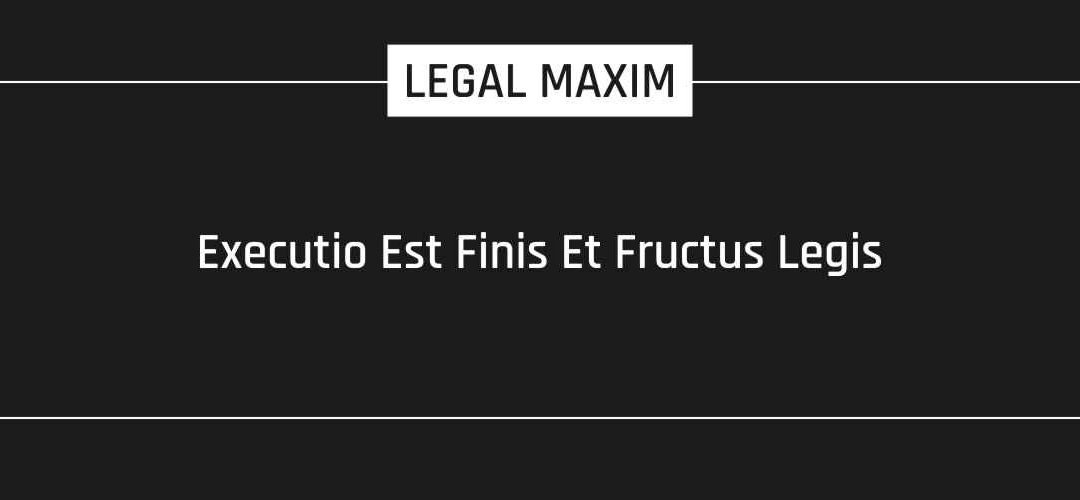Origin
Latin
Literal Meaning
Execution is the end and the fruit of the law
Explanation
The term “execution” has not been defined in the code. The expression “execution” simply means the process for enforcing or giving effect to the judgment of the court. The principles governing the execution of decree and orders are dealt with in Sections 36 to 74 and Order 21 of the Civil Procedure Code.
Implementation of litigation is also known as an execution. A decree will come into existence where the civil litigation has been instituted with the presentment of the plaint. The decree means operation or conclusiveness of judgment. Implementation of a decree will be done only when parties have filed an application in that regard. A decree or order will be executed by the court as facilitative and not an obligation. If a party is not approaching the court, then the court has no obligation to implement it suo moto. A decree will be executed by the court which has passed the judgment. In exceptional circumstances, the judgment will be implemented by another court which is having competency in that regard.
Execution is the medium by which a decree-holder compels the judgment-debtor to carry out the mandate of the decree or order as the case may be. It enables the decree-holder to recover the fruits of the judgment. The execution is complete when the judgment-creditor or decree-holder gets money or other thing awarded to him by judgment, decree, or order.
Illustration:
A files a suit against B for Rs 10,000 and obtains a decree against him. Here A is the decree-holder. B is the judgment-debtor, and the amount of Rs 10,000 is the judgment- debt or the decretal amount. Since the decree is passed against B, he is bound to pay Rs 10,000 to A. Suppose in spite of the decree, B refuses to pay the decretal amount to A, and A can recover the said amount from B by executing the decree through the judicial process. The principle governing the execution of decree and orders are dealt with in Sections 36 to 74 (substantive law) and Order 21 of the code (procedural law).
Case Laws
Supreme Court in Ghanshyam Das vs. Anant Kumar Sinha dealing with the provision of the code relating to the execution of decree and orders, stated, “so far as the question of executability of a decree is concerned, the Civil Procedure Code contains elaborate and exhaustive provisions for dealing with it in all aspects. The numerous rules of Order 21 of the code take care of different situations providing effective remedies not only to judgment-debtors and decree-holders but also to claimant objectors, as the case may be. In an exceptional case, where provisions are rendered incapable of giving relief to an aggrieved party inadequate measures and appropriate time, the answer is a regular suit in the civil court.
This maxim has been written and submitted by Ms. Aarushi Kapoor during her course of internship at B&B Associates LLP. Ms. Aarushi is a third-year law student at Hidayatullah National Law University, Naya Raipur, Chhattisgarh
